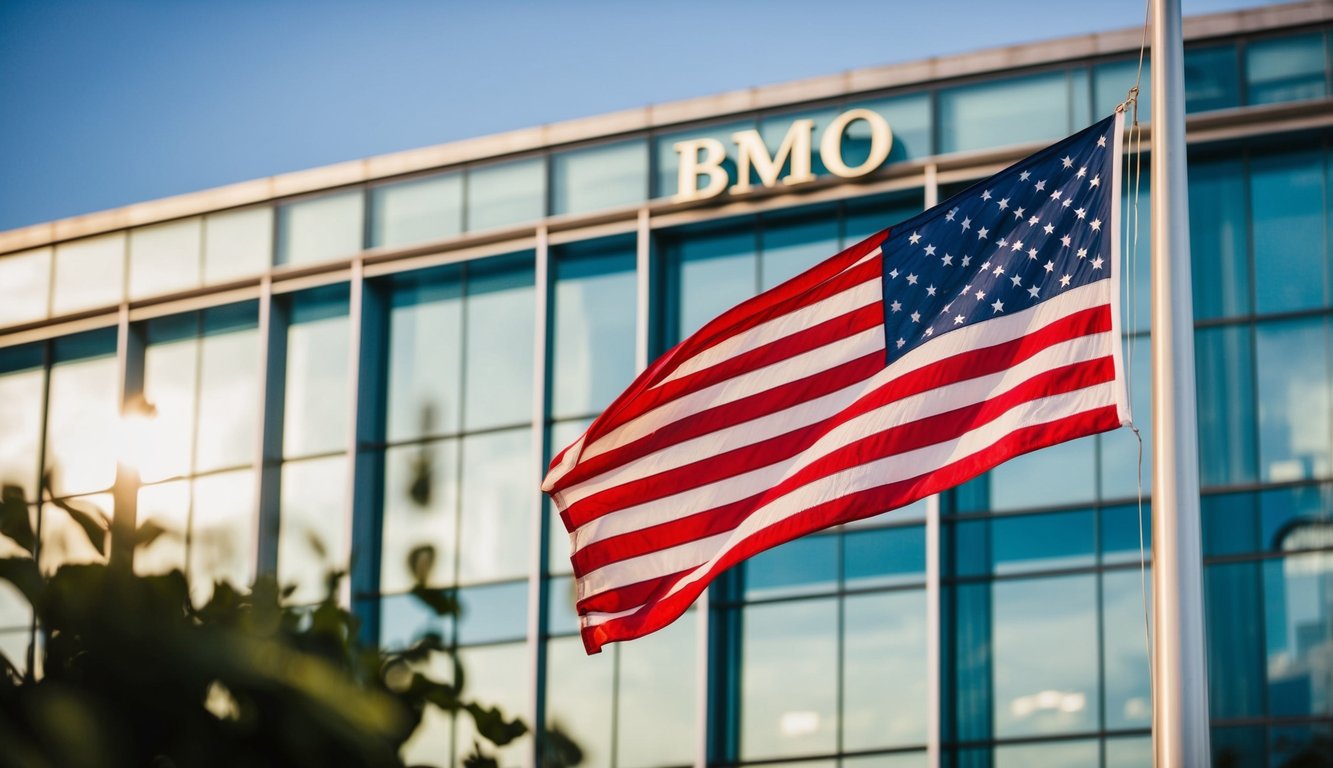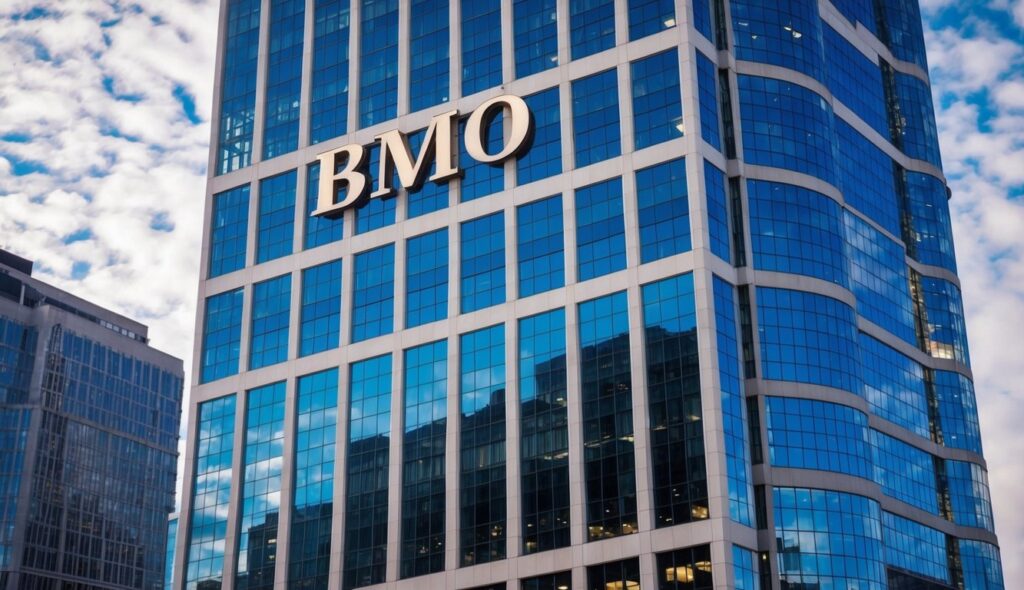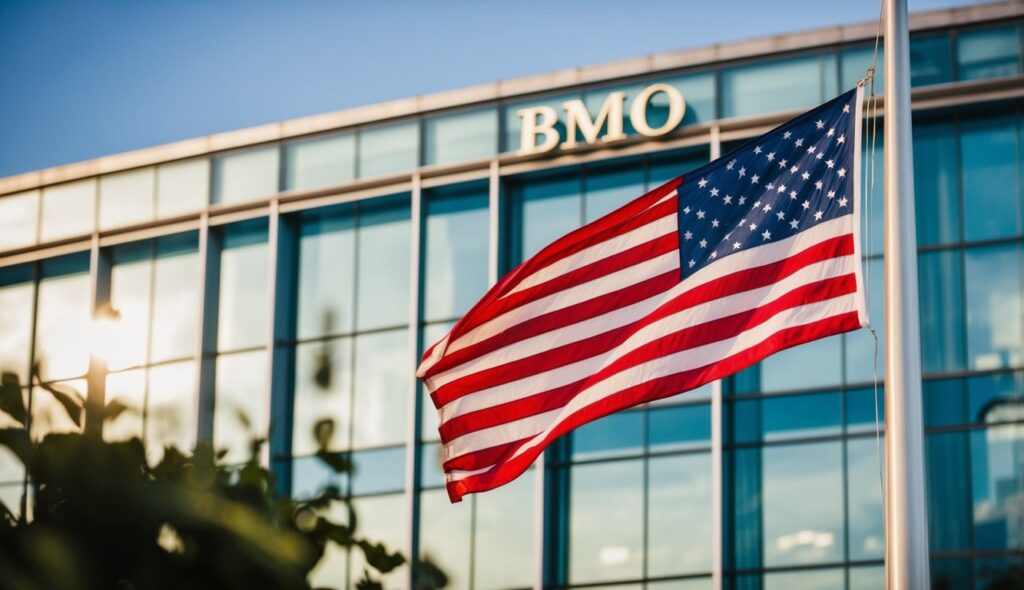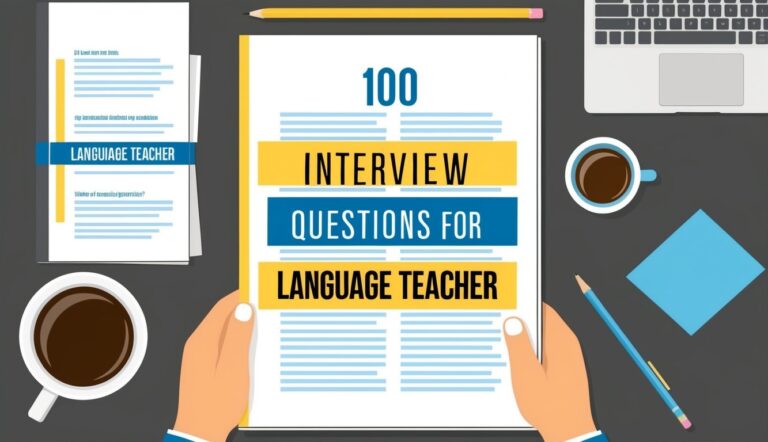110 Interview Questions BMO (Bank of Montreal): A Comprehensive Guide for Success

Preparing for an interview can be time-consuming, especially when it involves a major company like BMO USA. You need to feel prepared and confident, which is why having a comprehensive list of interview questions is crucial. This post covers 110+ interview Questions for Job at BMO (Bank of Montreal).
These questions help you understand what the hiring process at BMO might look like and what the interviewers are seeking in a potential candidate.

BMO USA offers a range of career opportunities, and acing the interview is a key step in the hiring process. By exploring a wide array of questions, you get a clearer picture of the company’s expectations and culture.
This guide will help you build the confidence to present yourself as the ideal candidate.
Whether it’s your first interview or you’re a seasoned professional, each opportunity brings its own challenges. With these 110 interview questions, you can gain insights into the types of queries that BMO might pose. You’ll be better equipped to highlight your strengths and align them with the company’s values.
Understanding the BMO Interview Structure

To succeed in the BMO interview process, you need to know its steps. You’ll start with an online application and end with an in-person interview and follow-up steps. Each phase has key points you should focus on to prepare.
Initial Application and Online Submission
The interview process begins with an online application. You should submit your resume and complete any required forms on BMO’s career portal. Make sure your skills match the job description closely. Tailor your resume to highlight your achievements clearly.
After submitting, you might be prompted to complete an online assessment. These tests can include questions about logical reasoning or situational judgment. Completing these accurately and promptly is crucial. It tells BMO more about your fit for the role.
Next, you might get a phone screening. This is your chance to make a strong first impression. Be prepared to discuss your background and why you’re interested in BMO. Have your key points ready to smoothly guide the conversation.
In-Person Interviews
If you pass the initial stages, you’ll be invited for in-person interviews. These interviews often take place at a BMO office and can include multiple rounds. You might meet with a panel of interviewers or have one-on-one sessions.
Be ready for various BMO interview questions, which can cover technical skills, situational responses, and your understanding of BMO’s culture. Practice answering questions clearly and concisely. Be confident in expressing your thoughts.
During these interviews, assess your fit with BMO’s work environment. This is your opportunity to ask questions about team dynamics or company goals. Show genuine interest and knowledge about the organization.
Hiring Decision and Follow-Up BMO (Bank of Montreal)
After the interview, BMO will review all feedback and make a hiring decision. This stage might take some time, as they carefully consider all candidates. Patience is important here, but also feel free to follow up if you haven’t heard back.
Once you receive an offer, it’s crucial to review the terms carefully. Reach out with any questions or clarifications. If you haven’t been selected, consider asking for feedback. This can provide valuable insights for future applications.
This entire process requires preparation and attention to detail. By understanding what each stage involves, you can present yourself as the best candidate for the job.
Common Interview Questions at BMO (Bank of Montreal) USA

When preparing for an interview at BMO USA, you can expect a mix of technical, behavioral, and culture-focused questions. Understanding what to expect will help you feel more prepared and confident.
Technical and Role-Specific Questions BMO (Bank of Montreal)
In this section, you’ll find questions focused on your technical skills and expertise related to the role. BMO aims to evaluate your knowledge and how it applies to the position.
- What financial software are you familiar with?
- Explain a complex financial model you have worked on.
- Describe your experience with data analysis.
- How do you stay updated with financial regulations?
- What are key metrics to assess a financial institution’s health?
- How would you manage a project with tight deadlines?
- Describe a challenging technical problem you’ve solved.
- Discuss your experience with risk management.
- Can you explain the principles of financial forecasting?
- How do you ensure accuracy in your financial reports?
Behavioral and Situational Questions BMO
These questions aim to understand how you interact with others and navigate different workplace scenarios. Your responses offer insight into your decision-making, adaptability, and interpersonal skills at BMO USA.
- Describe a time when you resolved a team conflict.
- Give an example of how you handled a project failure.
- How do you prioritize your work when you have multiple deadlines?
- Tell me about a time when you had to adapt quickly to a change.
- Describe a successful team project you’ve been part of.
- How do you handle receiving criticism?
- Explain a situation where you went beyond your responsibilities.
- Tell me about a time you had to make a difficult decision.
- Share an example of how you motivated a team member.
- How do you manage your time effectively?
Questions about BMO’s Culture and Values BMO (Bank of Montreal)
Preparing for questions about BMO’s culture helps demonstrate your alignment with their values. Candidates should reflect on how their personal principles match with those of the bank.
- Why do you want to work at BMO?
- How do you embody BMO’s values in your work?
- Have you ever aligned your goals with an organization’s mission?
- Describe a time you demonstrated integrity at work.
- How do you contribute to a positive work environment?
- What excites you about BMO’s commitment to sustainability?
- How do you handle ethical dilemmas?
- Explain why community involvement is important to you.
- Describe your understanding of diversity and inclusion.
- How do you stay engaged with company events and initiatives?
List of 110 Interview Questions BMO (Bank of Montreal)

Interviewing can be tough, but preparing for common questions can help you succeed. Here are categories you might encounter:
- Can you tell me about yourself?
- I have a background in finance with a degree in Economics from XYZ University. Over the past three years, I’ve worked in various roles in financial analysis and customer service, where I developed strong analytical and communication skills. I’m passionate about helping clients achieve their financial goals and am excited about the opportunity to contribute to BMO’s success.
- What interests you about working at BMO?
- BMO’s commitment to innovation and community involvement resonates with my values. I admire how BMO integrates technology into banking solutions and supports local initiatives. I believe my skills align well with BMO’s mission, and I’m eager to be part of a team that makes a positive impact.
- Why did you choose a career in finance?
- I’ve always been fascinated by how financial systems operate and their impact on everyday life. I enjoy working with numbers and analyzing data to make informed decisions. A career in finance allows me to combine my analytical skills with my interest in helping people manage their finances effectively.
- What do you know about BMO’s values and culture?
- BMO emphasizes integrity, respect, and collaboration. The bank is dedicated to diversity and inclusion, ensuring that all voices are heard. I appreciate BMO’s focus on customer-centric solutions and its commitment to sustainability and community involvement.
- Describe a time when you had to work under pressure.
- In my previous role, I was tasked with preparing a financial report with a tight deadline due to a last-minute request from senior management. I organized my tasks, focused on the critical elements of the report, and collaborated with my team to gather necessary data. We successfully met the deadline, and the report received positive feedback.
- How do you prioritize your tasks?
- I use a combination of methods, including to-do lists and prioritization matrices. I assess the urgency and importance of each task and focus on high-impact activities first. Regularly reviewing my progress helps me stay on track and adjust priorities as needed.
- What is your experience with financial analysis?
- I have conducted financial analysis in my previous roles, including budgeting, forecasting, and variance analysis. I am proficient in using Excel for data analysis and have experience with financial modeling to assess investment opportunities.
- Can you explain the importance of risk management?
- Risk management is crucial in finance as it helps identify, assess, and mitigate potential risks that could impact an organization’s financial health. Effective risk management safeguards assets, ensures compliance with regulations, and supports informed decision-making.
- How do you stay updated on financial regulations?
- I regularly read industry publications, follow financial news, and participate in webinars and training sessions. Additionally, I’m a member of professional organizations that provide resources and updates on regulatory changes.
- Describe a situation where you had to work as part of a team.
- In my last job, I was part of a project team tasked with launching a new financial product. My role was to conduct market research and analyze customer needs. We held regular meetings to share updates, brainstorm ideas, and ensure alignment. The product launch was successful, and I learned the importance of collaboration.
- What strategies do you use for effective communication?
- I focus on being clear and concise in my communication. I tailor my message based on the audience, ensuring that I use language that is appropriate for their level of understanding. I also actively listen and encourage feedback to foster open dialogue.
- How do you handle difficult clients or customers?
- I approach difficult clients with empathy and patience. I listen to their concerns, validate their feelings, and work to find a solution that meets their needs. If necessary, I involve a supervisor to ensure the issue is resolved satisfactorily.
- Can you provide an example of a successful project you managed?
- I led a project to streamline our reporting process, which involved gathering input from various departments. I created a timeline, assigned tasks, and facilitated meetings to track progress. As a result, we reduced report preparation time by 30%, which improved overall efficiency.
- What financial software are you familiar with?
- I have experience using Excel for data analysis and financial modeling, as well as accounting software like QuickBooks and SAP. I’m also familiar with CRM tools to manage client relationships effectively.
- How do you approach problem-solving?
- I start by defining the problem clearly and gathering relevant information. I analyze the data, brainstorm potential solutions, and evaluate the pros and cons of each option. I then implement the best solution and monitor the results for any necessary adjustments.
- Describe a time when you had to analyze complex data.
- I was tasked with analyzing sales data to identify trends and areas for improvement. I used Excel to create pivot tables and charts, which helped visualize the data. My analysis revealed a decline in sales for a specific product line, leading to a targeted marketing strategy that improved sales by 15%.
- What do you believe is the biggest challenge facing the banking industry today?
- One of the biggest challenges is adapting to rapid technological changes while ensuring cybersecurity. Banks must balance innovation with the need to protect customer data and maintain trust. Additionally, the shift towards digital banking requires a focus on providing excellent online customer experiences.
- How do you ensure accuracy in your work?
- I double-check my work and use software tools to minimize errors. I also seek feedback from colleagues and encourage them to review my analyses. Establishing a systematic approach to data entry and analysis helps maintain accuracy.
- Can you discuss a time when you had to meet a tight deadline?
- During a quarterly financial review, I was given a short notice to prepare a detailed analysis for an upcoming board meeting. I prioritized my tasks, worked extra hours, and collaborated with my team to gather necessary data quickly. We delivered the analysis on time, and it was well-received.
- What are your long-term career goals?
- My long-term goal is to take on leadership roles within the finance sector, where I can mentor others and drive strategic initiatives. I aim to deepen my expertise in financial management and contribute to the growth of a reputable institution like BMO.
- How do you handle constructive criticism?
- I view constructive criticism as an opportunity for growth. I listen carefully, ask clarifying questions if needed, and reflect on the feedback. I appreciate feedback that helps me improve my skills and performance.
- Describe your experience with budgeting and forecasting.
- I have been involved in the budgeting process for my department, where I helped gather data, analyze trends, and prepare forecasts. I used historical data to inform our budget and worked closely with team members to ensure alignment with organizational goals.
- What is your understanding of BMO’s products and services?
- BMO offers a wide range of financial products, including personal and commercial banking, wealth management, and investment services. I understand that BMO focuses on providing tailored solutions to meet the diverse needs of its clients.
- How do you build relationships with clients?
- I prioritize active listening and understanding clients’ needs and goals. I follow up regularly, provide timely updates, and ensure they feel valued. Building trust through transparency and consistent communication is key to fostering strong relationships.
- Can you explain the concept of asset allocation?
- Asset allocation is the process of distributing investments across various asset classes, such as stocks, bonds, and cash, to balance risk and return. It’s essential for managing investment portfolios effectively and aligning with an investor’s risk tolerance and financial goals.
- Describe a time you had to persuade someone to see your point of view.
- In a previous role, I needed to convince my team to adopt a new financial software that I believed would enhance our efficiency. I organized a presentation highlighting the software’s benefits, including time savings and improved accuracy.
- I also arranged a demonstration to showcase its features. After addressing their concerns and showing how it aligned with our goals, the team agreed to implement the software.
- What do you think sets BMO apart from its competitors?
- BMO’s commitment to community involvement and sustainable finance sets it apart. The bank actively engages in initiatives that support local communities and promote environmentally responsible practices.
- Additionally, BMO’s focus on innovation in digital banking enhances customer experience, making it a leader in the industry.
- How do you approach networking in the finance industry?
- I believe in building genuine relationships through active participation in industry events, seminars, and online forums. I connect with professionals on platforms like LinkedIn and engage in discussions about industry trends. I also seek mentorship opportunities to learn from experienced individuals in the field.
- Can you give an example of how you’ve improved a process?
- In my last position, I noticed that our expense reporting process was cumbersome and time-consuming. I took the initiative to propose a new digital tool that streamlined submissions and approvals.
- After implementing the tool, we reduced processing time by 40%, which allowed the team to focus on more strategic tasks.
- What do you consider to be your greatest strength?
- My greatest strength is my analytical ability. I excel at breaking down complex financial data into actionable insights. This skill has allowed me to identify trends and make data-driven recommendations that have positively impacted my team and organization.
- How do you handle conflicts within a team?
- I approach conflicts by fostering open communication. I encourage team members to express their viewpoints and facilitate a discussion to understand the underlying issues.
- By focusing on common goals and finding a compromise, I help the team move forward productively.
- What is your experience with credit analysis?
- I have conducted credit analysis for various clients, evaluating their creditworthiness through financial statements, credit reports, and industry benchmarks.
- This experience has taught me how to assess risk and make informed lending decisions.
- Describe a situation where you demonstrated leadership.
- I led a cross-functional team to develop a new financial product. I coordinated meetings, set deadlines, and ensured everyone was aligned with our objectives.
- By fostering collaboration and encouraging input from all team members, we successfully launched the product ahead of schedule.
- How do you approach learning new financial concepts?
- I believe in a hands-on approach to learning. I start by researching the topic through reputable sources and then apply what I’ve learned in practical scenarios. I also seek mentorship and engage in discussions with colleagues to deepen my understanding.
- What metrics do you consider when evaluating investment opportunities?
- When evaluating investment opportunities, I consider metrics such as return on investment (ROI), price-to-earnings (P/E) ratio, and risk-adjusted returns.
- I also analyze market trends and the overall economic environment to make informed decisions.
- How would you explain a complex financial concept to a non-financial person?
- I would use simple language and relatable examples to explain the concept. For instance, if explaining compound interest, I might compare it to planting a tree that grows more branches over time, illustrating how the initial investment grows as interest accumulates.
- What are your thoughts on the current economic climate?
- The current economic climate presents both challenges and opportunities. While inflation and interest rate fluctuations pose risks, there are also opportunities for growth in sectors like technology and renewable energy. Adapting to these changes is crucial for financial institutions.
- How do you manage your time effectively?
- I use a combination of calendar tools and task management apps to organize my schedule. I set specific goals for each day and prioritize tasks based on deadlines and importance. Regularly reviewing my progress helps me stay on track.
- Describe a time when you went above and beyond for a customer.
- A customer once approached me with a complex issue regarding their investment portfolio. I took the time to analyze their situation thoroughly and provided a detailed report with tailored recommendations. The customer appreciated my dedication and expressed gratitude for the personalized service.
- What do you consider to be the most important skills for this role?
- I believe strong analytical skills, effective communication, and a customer-centric mindset are essential for success in this role.
- Additionally, adaptability and teamwork are crucial in navigating the dynamic financial landscape.
- How do you handle stress in a fast-paced environment?
- I manage stress by staying organized and maintaining a positive attitude. I prioritize my tasks and take short breaks to recharge.
- Practicing mindfulness techniques, such as deep breathing, also helps me stay focused during high-pressure situations.
- Can you provide an example of a financial report you created?
- I created a quarterly financial performance report for my department, which included key metrics, variance analysis, and actionable insights. I presented the report to management, highlighting areas for improvement and strategies to enhance performance.
- How do you ensure compliance with financial regulations?
- I stay informed about relevant regulations through continuous education and training. I also collaborate with compliance teams to ensure that our practices align with regulatory requirements. Regular audits and reviews help identify any potential gaps.
- What role do you think technology plays in the banking sector?
- Technology plays a transformative role in the banking sector by enhancing efficiency, improving customer experience, and enabling data-driven decision-making. Innovations like mobile banking and AI-driven analytics are reshaping how banks operate and interact with clients.
- How do you approach mentorship and professional development?
- I actively seek mentorship opportunities and participate in professional development programs. I believe in continuous learning and regularly attend workshops and conferences to enhance my skills and knowledge.
- What’s your experience with market research?
- I have conducted market research to analyze customer preferences and industry trends. This involved gathering data through surveys and analyzing competitors’ offerings. My findings helped inform product development and marketing strategies.
- Describe a time when you had to adapt to a significant change.
- When my previous company transitioned to a new financial software system, I quickly adapted by attending training sessions and seeking help from colleagues.
- I embraced the change and even assisted others in the transition, which improved overall team efficiency.
- How do you measure success in your role?
- I measure success by setting clear goals and evaluating my performance against them. Client satisfaction and positive feedback, along with achieving key performance indicators, are also critical indicators of success in my role.
- What do you think are the key trends in banking right now?
- Key trends include the rise of digital banking, increased focus on sustainability, and the integration of advanced technologies like AI and blockchain. These trends are reshaping how banks operate and interact with customers.
- How would you handle a situation where a team member is not contributing?
- I would approach the team member privately to understand any challenges they may be facing. I would encourage open communication and offer support to help them re-engage with the team.
- If necessary, I would involve a supervisor to ensure the issue is addressed constructively.
- What interests you about working at BMO?
- Why did you choose a career in finance?
- What do you know about BMO’s values and culture?
- Describe a time when you had to work under pressure.
- How do you prioritize your tasks?
- What is your experience with financial analysis?
- Can you explain the importance of risk management?
- How do you stay updated on financial regulations?
- Describe a situation where you had to work as part of a team.
- What strategies do you use for effective communication?
- How do you handle difficult clients or customers?
- Can you provide an example of a successful project you managed?
- What financial software are you familiar with?
- How do you approach problem-solving?
- Describe a time when you had to analyze complex data.
- What do you believe is the biggest challenge facing the banking industry today?
- How do you ensure accuracy in your work?
- Can you discuss a time when you had to meet a tight deadline?
- What are your long-term career goals?
- How do you handle constructive criticism?
- Describe your experience with budgeting and forecasting.
- What is your understanding of BMO’s products and services?
- How do you build relationships with clients?
- Can you explain the concept of asset allocation?
- Describe a time you had to persuade someone to see your point of view.
- What do you think sets BMO apart from its competitors?
- How do you approach networking in the finance industry?
- Can you give an example of how you’ve improved a process?
- What do you consider to be your greatest strength?
- How do you handle conflicts within a team?
- What is your experience with credit analysis?
- Describe a situation where you demonstrated leadership.
- How do you approach learning new financial concepts?
- What metrics do you consider when evaluating investment opportunities?
- How would you explain a complex financial concept to a non-financial person?
- What are your thoughts on the current economic climate?
- How do you manage your time effectively?
- Describe a time when you went above and beyond for a customer.
- What do you consider to be the most important skills for this role?
- How do you handle stress in a fast-paced environment?
- Can you provide an example of a financial report you created?
- How do you ensure compliance with financial regulations?
- What role do you think technology plays in the banking sector?
- How do you approach mentorship and professional development?
- What’s your experience with market research?
- Describe a time when you had to adapt to a significant change.
- How do you measure success in your role?
- What do you think are the key trends in banking right now?
- How would you handle a situation where a team member is not contributing?
- Can you discuss your experience with investment strategies?
- What do you know about BMO’s community involvement?
- How do you approach setting and achieving personal goals?
- Describe your experience with customer relationship management (CRM) tools.
- What are your thoughts on sustainable finance?
- How do you stay organized in your work?
- Can you explain the difference between stocks and bonds?
- Describe a challenge you faced in your previous job and how you overcame it.
- What motivates you in your work?
- How do you handle confidential information?
- What’s your experience with financial modeling?
Tailor your responses to the role you’re applying for. Study the job description and think about experiences that relate to the tasks involved.
Practice responding to these questions with clear and concise answers. Be ready to provide examples from your experiences. This preparation will help you present yourself confidently in your interview.
Frequently Asked Questions BMO (Bank of Montreal) Interview

You’ll get a sense of what to expect in a BMO interview, including the types of questions you might face. There are examples of technical, customer service, and behavioral questions, along with tips on preparing for digital and one-way interviews.
What can you expect during the BMO interview process?
During the BMO interview process, you will likely experience a combination of behavioral and technical questions.
Be prepared to discuss your past experiences and how they relate to the role you are applying for. You may also go through multiple rounds of interviews with different team members.
What are some examples of technical questions that BMO (Bank of Montreal) may ask in interviews?
For technical roles, you might encounter questions that test your problem-solving skills. Expect queries on specific technologies or tools relevant to the position.
You could also face questions that require you to solve real-world scenarios that highlight your technical abilities.
What types of questions are typically asked for Customer Service Representative positions at BMO?
As a Customer Service Representative, you’ll meet questions focused on resolving customer issues and handling difficult situations. You may need to describe how you’ve assisted customers in the past.
Expect questions on your communication skills and ability to keep customers satisfied.
How can you prepare for a digital interview with BMO (Bank of Montreal)?
When preparing for a digital interview, make sure your technology works smoothly. Test your equipment and internet connection, and set up in a quiet, well-lit area.
Practice answering questions on camera to build confidence and present yourself effectively.
How should you answer behavioral interview questions for a role at BMO?
Behavioral questions require you to use examples from past experiences. Clearly explain each part to show how you handled similar situations before and what you learned from them.
What strategies can you use to effectively respond to BMO’s one-way interview questions?
For one-way interview questions, practice delivering concise, focused answers. Familiarize yourself with the format and time constraints. Rehearse potential questions you might face, ensuring that your responses align with BMO’s core values and the role’s requirements.
Please Note: This is a list of expected Questions so that you can prepare for the Interview process and feel confident. The actual interview Questions may vary.
All the Best !






